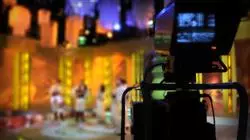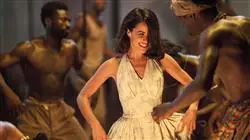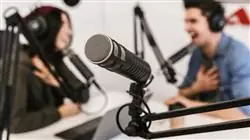University certificate
The world's largest faculty of journalism and communication”
Why study at TECH?
Cultural information is in high demand among the public, interested in learning about the customs and traditions of other countries. At TECHwe offer you this very complete course so that you can learn how to transmit this information in an attractive and rigorous way"

Cultural journalism has traditionally had a prominent presence in the media, but it has usually been a discipline far from the academy. In other times, professionals who have had a journalistic career in the area have been learning through practice with very few educational proposals. Nowadays, formation is essential in any sector.
This course has an eminently professional orientation, and seeks to train cultural journalism professionals who are capable of responding to the demands of the market. Journalists specialized in specific fields are needed in response to the growing segmentation of the public targeted by today's media. The field of cultural specialization is relevant because of the growing importance of the sector referred to cultural management and creation and, above all, because of the incorporation of culture into the digital sphere.
The objective of this program is to broaden the student's skills with a high level of deepening in the field of cultural journalism, which prepares the student in the informative and dissemination functions in the professional environment, with special emphasis on two media: radio and television.
And all this in a specialization of excellent academic level, created by specialized professionals with years of experience and, above all, with a 100% online format that will allow you to organize your study in a simple way, so that you can combine it with the rest of your daily obligations.
This program will allow you to increase your ability to succeed. Reach a higher level of professionalism in communication through the latest educational technology 100% online"
ThisPostgraduate certificate in Cultural Information on Radio and Television and Television contains the most complete and up-to-date academic program on the university scene. The most important features of the specialization are:
- The development of practical cases presented by experts in cultural journalism.
- The graphic, schematic, and practical contents with which they are created provide scientific and practical information on the disciplines that are essential for professional practice
- News on Cultural Information on Radio and Television
- Practical exercises where self-assessment can be used to improve learning
- Algorithm-based interactive learning system for decision-making in the situations that are presented to the student
- Its special emphasis on innovative methodologies in the creation of cultural information for radio and television
- Theoretical lessons, questions to the expert, debate forums on controversial topics, and individual reflection assignments
- Content that is accessible from any fixed or portable device with an Internet connection
This course is the best investment you can make in the selection of a professional program to upgrade your knowledge in Cultural Information in Radio and Television"
It includes in its teaching staff professionals belonging to the field of cultural journalism, who pour into this course the experience of their work, in addition to recognized specialists from reference societies and prestigious universities.
The multimedia content, developed with the latest educational technology, will provide the professional with situated and contextual learning, i.e., a simulated environment that will provide an immersive learning experience designed to prepare for real-life situations.
The design of this program focuses on Problem-Based Learning, by means of which the journalist will have to try to solve the different situations of professional practice that are presented to them. To do so, the specialist will have the help of an innovative interactive video system developed by recognized experts in cultural information in radio and television, and with great experience.
Increase your confidence in decision making, reinforcing your knowledge through this course"

Learn about the latest trends in the field of cultural journalism and improve communication processes in all journalistic media"
Syllabus
The structure of the contents has been designed by a team of professionals in cultural journalism in the national territory, aware of the relevance of current affairs in order to produce publications of academic quality, and committed to quality teaching through new educational technologies.

This course contains the most complete and up-to-date scientific program on the market, designed to help you achieve professional success"
Module 1. Cultural Information on the Radio
1.1. Information Objectives on the Radio
1.1.1. Characteristics Compared to Other Media
1.1.1.1. The Origin of the Radio
1.1.1.2. Characteristics Compared to Other Media
1.1.1.3. The Role of Radio Currently
1.1.2. Radio Language
1.1.2.1. What Language Allows Radio to Do
1.1.2.2. Accent on the Radio
1.1.2.3. The Retransmission of Events
1.2. Introduction to Cultural Radio Programs
1.2.1. Synopsis and Headlines or Summaries
1.2.1.1. Information Spaces
1.2.2.2. Listener Participation in Information Spaces
1.2.2.3. New Technologies in Radio
1.3. Report and Interview
1.3.1. Report and Interview
1.3.1.1. The Report
1.3.1.2. The Interview
1.4. Continuity Elements
1.4.1. Radio Fluency
1.4.1.1. Speech and Vocal Moderation
1.4.1.2. Repetition
1.5. Radio Script
1.5.1. Tools for Cultural Journalists in Radio
1.5.1.1. Radio Script
1.5.1.2. Radio Documentation
1.5.1.3. Style Manuals
Module 2. TelevisionCulture
2.1. Theoretical Basis
2.1.1. Basic Concepts and Differences with Radio and Other Media
2.1.1.1. Basic Concepts of Television Production
2.1.1.2. Difference with Film, Radio and Other Media
2.2. The Process of Television Creation
2.2.1. Production in the Studio
2.2.1.1. Particularities of Studio Recording
2.2.1.2. Functions of the Production Professional
2.2.1.3. Other Personnel and Technical Equipment
2.2.2. Multi-Camera Techniques
2.2.2.1. Differences with Respect to Single-Camera Production
2.2.2.2. Camera Triangle
2.2.2.3. Live Television
2.2.2.4. The Play-List
2.2.2.5. Magazines, the Debate, the Interview... the Staging
2.3. Documentary and Cultural Report
2.3.1. Introduction to Documentaries
2.3.1.1. Documentary and Journalism
2.3.1.2. Interaction with Reality
2.3.1.3. Documental de creación
2.3.2. Reporting
2.3.2.1. Audiovisual Cultural Journalism
2.3.2.2. Report, News and Editing
2.3.2.3. Features of the Report
2.3.3. The Documentary-Report Project
2.3.3.1. Introduction
2.3.3.2. Plot
2.3.3.3. Context
2.3.3.4. Synopsis and Structure
2.3.3.5. Form and Style
2.3.3.6. Public

A unique, key, and decisive educational experience to boost your professional development”
Postgraduate Certificate in Cultural Information in Radio and Television
Cultural Journalism has been a prominent discipline in the traditional media, but has often been kept away from educational institutions. In the past, professionals who have worked in the field have learned by doing, with very little opportunity for formal preparation. Today, however, specialization is essential in any industry, so this Postgraduate Certificate in Cultural Information in Radio and Television fills a much-needed need.
Get up to date in the keys of Audiovisual Cultural Journalism with TECH
Thus, this Postgraduate Certificate in Cultural Information in Radio and Television is designed to provide advanced specialization in the field of Audiovisual Cultural Journalism. Therefore, it will prepare professionals in the informative and dissemination functions in the cultural environment, focusing especially on two media: radio and television. Consequently, the aim is to enhance their skills in the use of Cultural Journalism tools or in the genre of reporting and interviewing. All this and more will be available to students in just 200 hours, an academic journey in which they will boost their educational performance through videos, interactive diagrams, analysis cases and much more.







